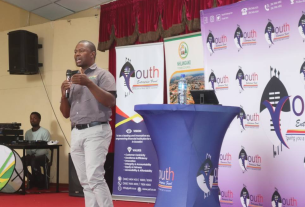PHESHEYA IAN KUNENE
MBABANE – The incoming President-Elect of the Chartered Institute of Government Finance Audit and Risk Officers (CIGFARO), Amos Twala, has called for a fundamental rethink of municipal billing systems, arguing that their current inefficiencies are contributing to a growing crisis of trust between local governments and the communities they serve.

Speaking at the opening of the joint billing conference hosted by Eswatini, Gauteng, and Mpumalanga at the Hilton Garden Inn in Mbabane, Twala said municipalities must transform their billing operations into instruments of trust and accountability.He told delegates that inaccurate bills, high charges and poor dispute resolution mechanisms were undermining the social contract between municipalities and residents. “This is not just a technical issue,” he warned, “it is a governance issue that threatens service delivery and public confidence.”
Citing the case of the City of Johannesburg, Twala said the billing chaos there had become a textbook example of how a poorly managed system could disrupt service provision and spark public outrage. He also noted that tensions between municipalities, Eskom and water boards over unpaid bills were further evidence of the systemic breakdown caused by billing inefficiencies.

However, he said there was still hope. Twala praised organisations such as CIGFARO, SALGA, the Auditor-General and the National Treasury for playing a positive role in promoting financial accountability in local government. He said CIGFARO had, for years, been providing training, research and knowledge-sharing platforms that empowered municipal finance professionals to manage complex billing environments.
Twala stressed four key areas that needed urgent attention. Firstly, he said municipalities must prioritise data integrity by upgrading systems, maintaining meters and validating billing data. “Without accurate data, even the best systems will fail,” he noted.
Secondly, he emphasised the need for transparency and open communication. “Residents must be able to understand their bills,” he said, adding that local governments should provide clear explanations for charges and allow feedback and dispute resolution.

Thirdly, he called for improved accountability and efficiency. Twala said billing systems should have consistent processes, clear responsibilities and safeguards against fraud, along with reliable reporting for better decision-making.
Lastly, he urged municipalities to adopt a customer-centered approach. “We must design billing systems with the user in mind – offering convenient payment methods, fair practices and responsive service,” he said.
Twala expressed hope that the three-day conference would provide a platform for participants to share experiences, learn from challenges and come up with tangible solutions. “Let’s work together for a future where our billing systems are not just accurate, but also fair and trusted,” he concluded.





